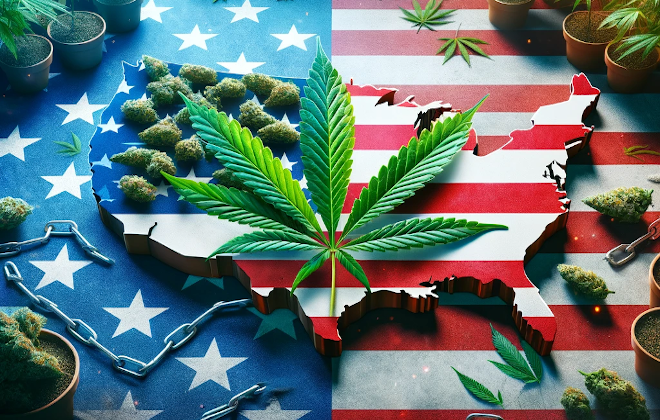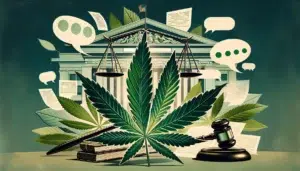
DEA Reclassification of Marijuana to Schedule III: Implications and Impact
The US Drug Enforcement Agency (DEA) is actively advancing plans to reclassify marijuana from a Schedule I to a Schedule III controlled substance under the Controlled Substance Act (CSA). However, the implementation of the final rule will take several months.
What led to this decision? What are the next steps? What implications might this rescheduling have on clinicians, patients, researchers, and the medical cannabis industry?
What led to this decision?
The move to reclassify is based on a determination by the US Food and Drug Administration (FDA) in 2023, which recognized marijuana’s legitimate medical use, warranting its shift to Schedule III.
Schedule I substances, as defined by the DEA, are drugs with no accepted medical use and a high potential for abuse, such as heroin, LSD, and ecstasy. In contrast, Schedule III substances, which include drugs like ketamine, acetaminophen with codeine, and buprenorphine, are recognized for having a moderate to low potential for physical and psychological dependence as well as medicinal benefits.
Despite marijuana’s long-standing violation of federal law regarding its manufacture, distribution, sale, and use, 74% of the country has legalized cannabis in some form. 38 states and Washington, DC have legalized its medical use, and 24 states along with DC have approved its recreational use.
Historically, Congress has permitted states some autonomy in the handling of medical marijuana, and neither current nor previous presidential administrations have actively pursued legal action against state-sanctioned marijuana use, according to reports from the Congressional Research Service (CRS).
The push to resolve the discrepancies between state and federal laws and a growing interest in the development of cannabis and cannabis-derived products likely influenced the DEA’s decision.
The DEA plans to submit a formal proposal to move marijuana to Schedule III to the White House Office of Management and Budget, though the exact timing is unclear. Once proposed, the rule will be published in the Federal Register followed by a public comment period, typically lasting 30-60 days.
The rescheduling would legally allow the prescription of medical marijuana in states where it is legalized. This change could significantly benefit patients, particularly those receiving care through the Veterans Administration (VA), which has previously prohibited medical marijuana prescriptions due to its Schedule I status.
However, patients in states where medical cannabis is not legalized would still face legal challenges at the state level, despite no longer violating federal law.
Although rescheduling allows medical marijuana doctors to prescribe and patients to use medical marijuana legally, the sale through dispensaries remains federally illegal under the Food, Drug, and Cosmetics Act.

Marijuana Rescheduling: What it Means for Dispensaries
Rescheduling could enhance tax benefits for the approximately 12,000-15,000 state-licensed cannabis dispensaries in the US, enabling them to access tax deductions previously unavailable to Schedule I substances. The rescheduling will likely lower the effective tax rate faced by businesses. In addition, the rescheduling might also facilitate more research into medical cannabis, which has been hindered by regulations around Schedule I drugs. However, other barriers might remain, such as sourcing cannabis for clinical trials.
As states like Ohio have loosened or fully legalized marijuana sales, the U.S. Government and Drug Enforcement Agency have consistently categorized cannabis as a Schedule I drug, similar to heroin, indicating no medical use. This classification has led to a complex landscape of legality and confusion for businesses.
The Landing Dispensary in Norwood, Ohio’s general manager, Abayomi Nelson, celebrated the DEA’s recent announcement to reclassify marijuana to Schedule III. “This is massive,” Nelson remarked. “Finally, it’s essentially a groundbreaking moment for us.” Nelson, who uses marijuana to alleviate severe knee pain, expressed personal relief and professional excitement about the shift.
This change could also transform business operations significantly, according to Kevin Hart, Founder and CEO of Green Check Verified. His company, which facilitates connections between marijuana businesses and financial institutions, has seen increased interest following the announcement. “From the announcement, our phones have been ringing,” Hart noted.
He explained that while it’s not explicitly illegal for federal banks to handle funds from marijuana businesses, the DEA’s decision to reclassify marijuana could greatly boost financial institutions’ confidence in engaging with the industry. “I think the news of the day is another step forward. It’s a big step forward,” Hart added.
Biden Pushes Pardons for Marijuana Convictions
President Biden plans to pardon thousands of individuals convicted of simple possession of marijuana at the federal level and urged state governors and local leaders to take similar actions. This move aims to address longstanding inequities related to marijuana convictions.
“This is monumental,” Biden stated in a video, emphasizing his commitment to correcting past wrongs from outdated drug policies. He called this a significant step towards fairness and justice.
Senate Majority Leader Chuck Schumer and the U.S. Cannabis Council have praised the decision, calling for further progress toward full legalization. However, some critics argue that the decision is politically motivated rather than based on scientific evidence.
Impact on Florida’s Recreational Marijuana Push
As the U.S. government contemplates reclassifying marijuana to a less restrictive category, the impact on Florida could be particularly significant. While this federal shift won’t instantly legalize marijuana in states like Florida, which have not yet approved it for recreational use, it could influence future legislative decisions and public opinions. The Governor himself has expressed his disfavor for the state going rec.
Matthew Schweich, executive director of the Marijuana Policy Project, noted that state legislators often express reluctance to support cannabis legalization because it remains federally illegal. “It is very common for a state legislator to tell me, ‘Well, I might be able to support this, but … I’m not going to vote for something that’s illegal under federal law,’” Schweich said. However, he believes that reclassifying marijuana could reduce this hesitation, describing the change as “historic and meaningful” at the federal level.
This November, Florida voters will have a direct say as they face a ballot measure, Amendment 3, to amend the state constitution to allow recreational cannabis. The potential reclassification at the federal level could significantly sway public opinion and influence the outcome, possibly easing the path toward recreational legalization in Florida.







What about the ability to have a concealed carry license? Will you be able to have a medical marijuana card and a concealed carry license?